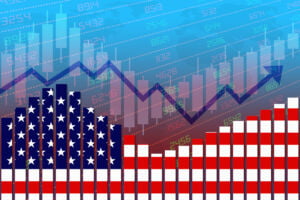Core PCE rate rises 0.3% for the third straight month
The numbers: A key measure of U.S. inflation rose just 0.2% in April to mark the smallest increase in a year and a half, aided by lower gas prices. Yet there were other hints that a surge in U.S. inflation might be abating.
The increase in the so-called personal consumption price index was the smallest since November 2020.
The rate of inflation over the past year, based on the PCE, slowed to 6.3% in April from a 40-year high of 6.6% in March. That was also the first decline in a year and a half.
A narrower measure of inflation that omits volatile food and energy costs, known as the core PCE, rose in April by 0.3% for the third month in a row. The increases in the core rate from February to April were the smallest since a trio of readings last summer.
The rate of core inflation in the past year, what’s more, slowed to 4.9% from 5.2% and fell for the second month in a row.
The last time the core rate had back-to-back declines was in the first few months of the pandemic in early 2020.
The Fed views the PCE index, the core rate in particular, as the most accurate measure of U.S. inflation. It’s more comprehensive and takes into account when consumers substitute cheaper goods for more expensive ones — say ground beef for filet mignon or frozen spinach for fresh.
The better-known consumer price index rose by a higher 8.3% in the 12 months ended in April.
Big picture: Most Americans have never endured such high inflation and it’s caused plenty of angst on Main Street, Wall Street, and Washington.
The Fed is moving to swiftly raise a key short-term interest rate that it kept near zero during most of the pandemic to try to quell inflation.
The resulting increase in interest rates on car loans, mortgages, and business lending is likely to slow the economy, though Fed officials insist they can bring down inflation without triggering a recession.
Whether the surge in inflation starts to peter out soon is still an open question, however.
The war in Ukraine has pushed up prices of oil and other commodities while recent lockdowns in China have exacerbated supply-chain issues that contributed heavily to the highest inflation in decades.
Market reaction: The Dow Jones Industrial Average DJIA, +0.42%, and S&P 500 SPX, +1.07% rose in Friday trades. Stocks had rallied over the past two days.

